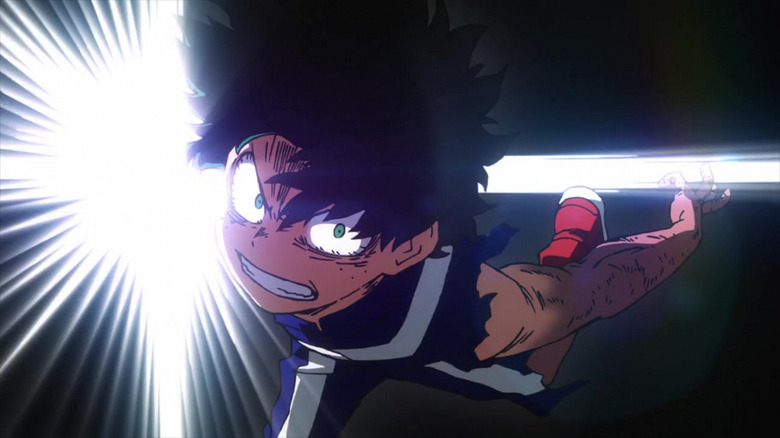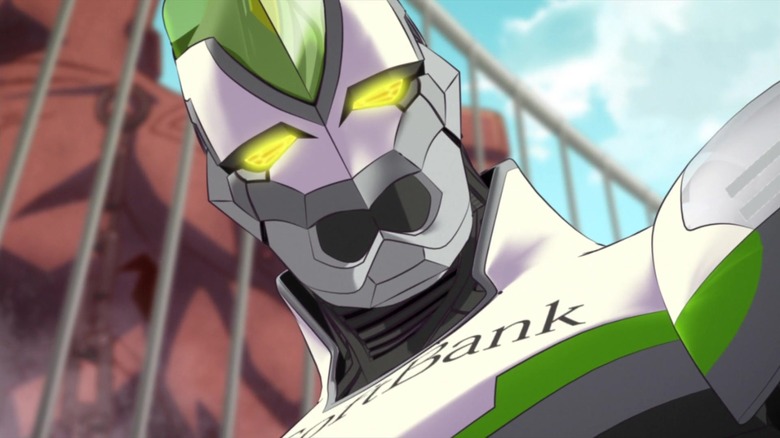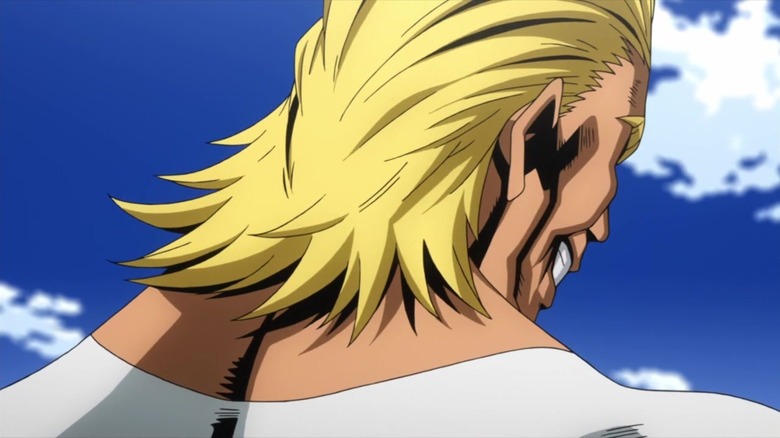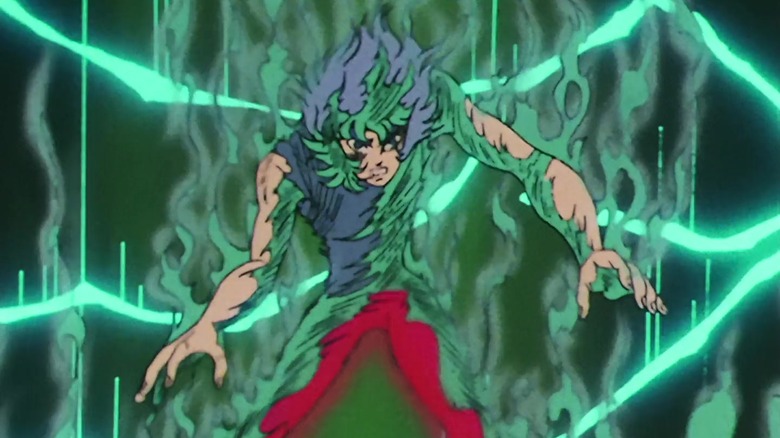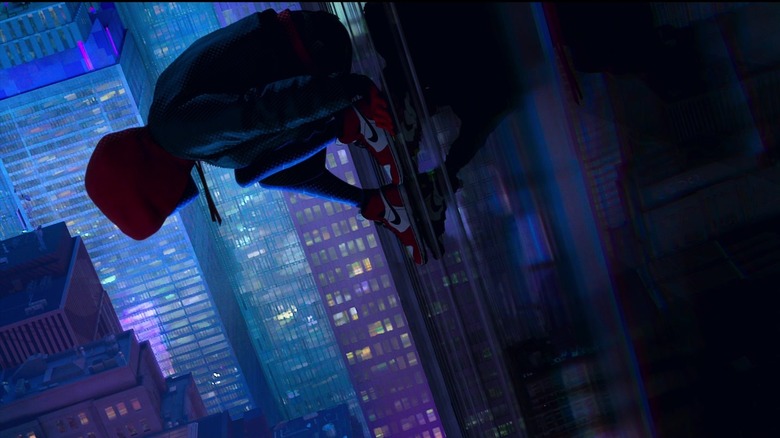Could The Live-Action My Hero Academia Movie Finally Be The Moment Anime Conquers Hollywood?
2022 has been another big year for anime and manga in the United States. This fall's "Chainsaw Man" anime is earning rave reviews. "Dragon Ball Super: SUPER HERO" earned $32 million worldwide in its first week. Netflix's "Cyberpunk Edgerunners" convinced folks to give the messy "Cyberpunk 2077" another shot, rocketing the game up the Steam rankings. On the manga front, the blockbuster success of Junji Ito has led publishers to take chances on other horror artists like Kazuo Umezu and Kanako Inuki. There's even a fledgling indie manga movement in the United States, with small publishers like Glacier Bay Books and Star Fruit Books distributing titles that might never otherwise see the light of day. We're long past the time of executives chopping up anime series in the editing docket to be marketable to American children. Anime and manga are now respected in their own right, if only because it sells.
Hollywood, though, is an exception. Anime films like "Demon Slayer: Mugen Train" and "Jujutsu Kaisen 0" have been successful, but live-action adaptations have floundered. Netflix's "Death Note" movie was a mess, and "Cowboy Bebop" was worse. "Dragonball Evolution" remains a laughingstock to this day. A new challenger appears: an adaptation of Shonen Jump hit "My Hero Academia," courtesy of director Shinsuke Sato, scriptwriter Joby Harold, and Legendary Pictures. With its focus on superheroes and legacy, there's every chance that a live-action take on the story could capture new audiences raised on Marvel and DC. But at this stage in the game, it's worth asking why folks keep chasing this white whale. What reason could producers have to try and recreate the success of boy's action comics in a format antithetical to the charms of its source material?
Let's go, old man!
"My Hero Academia" is not the first attempt at a Hollywood live-action film based on a Japanese superhero property. Back in 2015, a film adaptation of the then-popular action series "Tiger and Bunny" was announced, via Imagine Entertainment and All Nippon Entertainment Works. Three years later, Global Road Entertainment was brought on board to co-produce. But then Global Road Entertainment went bankrupt within a few months, and rights reverted to original series producers Bandai Namco. As of June this year, a new film production is reportedly in development via SK Global. A long-belated sequel to the series finally aired this year on Netflix, but failed to attract the same attention as the original. Once ahead of its time, "Tiger and Bunny" had become a relic.
At the same time, it's easy to understand why producers were interested in a live-action "Tiger and Bunny" film. A year before "The Avengers" convinced the masses that superheroes eating chicken shawarma after saving New York was the funniest thing in the world, "Tiger and Bunny" had already pioneered its own brand of laid-back heroism. Before fans began shipping Captain America and Bucky, "Tiger and Bunny" fans were already rooting for protagonist and single dad Kotetsu Kaburagi to get together with his younger partner Barnaby Brooks. It's a fun spin on material that has already proven popular, and thus ripe for harvesting by Hollywood executives.
You say run
"My Hero Academia" presents a similar mix of old and new material. It's a classic Shonen Jump tale about a boy named Deku who becomes the best at his chosen hobby but set in the world of superheroes. It freely mixes Marvel-style attempts at social commentary with DC-style legacy storytelling. Tournament arcs reminiscent of "Dragon Ball" and "Naruto" are interrupted by villains snatched from extreme 90s Image comics like "Spawn." Of course, Japanese manga and anime have always drawn from an international pool of influence. "Dragon Ball," one of the most influential action comics ever drawn, took as much from "Superman" as it did from Jackie Chan's comedy martial arts films.
Meanwhile, upcoming live-action productions from Japan seemingly take direct influence from American superhero films. "Knights of the Zodiac" is a movie co-produced by Toei Animation, directed by "The Witcher" illustrator/producer Tomasz Baginski and featuring Sean Bean. The trailer's muddy color palette, slow-motion action and caped crusaders lit by lightning amid cloudy skies are all reminiscent of Zack Snyder's DC films. The protagonist's quips in the face of genre absurdity ("I'd say your therapist isn't worth his paycheck") are right out of Marvel. The original "Knights of the Zodiac" manga and anime was very popular in Europe and Latin America during its '80s heyday, where it was known by its original title "Saint Seiya." By tweaking the adaptation to capture fans of "Iron Man" and "Justice League," it's possible that Toei is hoping to catch an American audience as well.
I can see each of your punches clearly
It's worth asking what anime and manga lose in adaptation. "Knights of the Zodiac" is a great example. Toei may do its best to make the series accessible to mainstream audiences raised on Marvel movies. But the greatness of "Knights of the Zodiac," the quality that made it such a big hit in the 1980s, is how outrageous it is. This is a series where the hero's mentor says, "I can see each of your punches clearly...86 per second! Not enough to help you against a true knight!" One of the main characters, Cygnus Hyoga, periodically swims deep into the oceans to place a flower on his mother's long-frozen corpse. None of this is played as a joke. "Knights of the Zodiac" is sincere, a world away from the endless riffing popularized by Tony Stark and "The Avengers." Bringing the series down to earth for live action, rather than playing up the melodrama, runs the risk of snuffing out what made it special.
Further complicating matters is that Shonen Jump comics rarely lend themselves to stand-alone storytelling. For instance, no arc in "My Hero Academia" lends itself to being snipped out and repurposed. Deku's trajectory from resourceful nerd to inheritor of his mentor All Might's powers is built for a series-long slow burn rather than a two-hour superhero narrative. The staff making the live-action film would likely need to change the plot significantly to work within the new format. Not to mention the difficulty they might face in rendering Horikoshi's character designs, which succeed via animation-ready expressiveness rather than detail or realism.
It's a leap of faith
It isn't surprising that Hollywood sees anime as a potential factory for intellectual property. Comics have long been mined for film and television rights by executives rather than taken seriously as artistic works in their own right. (Or vice-versa: they are taken seriously so that they may be mined for film and television rights by executives.) Now video games are being adapted, with a high-profile HBO drama based on "The Last of Us" set to air next year. Anime adaptations are a natural next step. It doesn't matter if the upcoming "Gundam" film is a failure, or if the "Your Name" remake is bad, or if the special effects in the upcoming "One Piece" live-action series are disturbing. So long as one of those projects is a hit, producers can take solace that they were in the right ballpark.
My personal feelings are simple. After watching "Spider-Man: Into the Spider-Verse" three times in theaters in 2018, I realized that every live-action superhero movie that has ever been made, even my beloved "Spider-Man 2," was retroactively a waste of time. As far as I'm concerned, producers shouldn't be adapting animated superheroes into live-action. They should be adapting live-action superheroes into animation. The artistry with which "My Hero Academia," "Knights of the Zodiac" and their peers are told is as important to their fans as the story and characters. Until producers realize they can't just fake their way into global success by neutering their comics for wide consumption, their works will be doomed to mediocrity.
